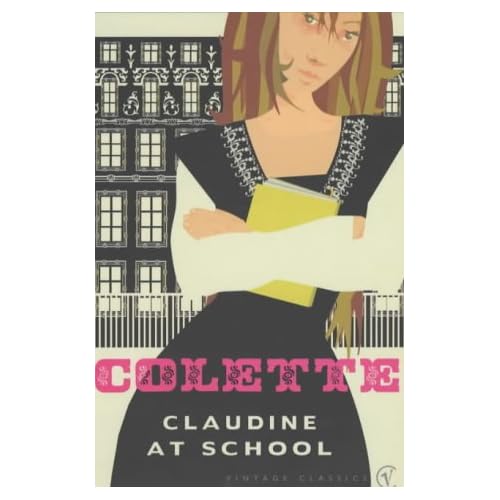 ...And yes, Dexter’s back on my blog, after what seems like absolute ages. I’ve had the fourth of the Dexter books on my shelf for over a year, and that in itself surprises me, as I lapped up the first three books in the series in about a week. Yes, I did enjoy them that much.
The fourth book doesn’t disappoint, although, it starts getting a lot more.... what’s the word... melodramatic. You have your protagonist: blood spatter analyst by day, and serial killer by night, and now - now, he’s hitched, enjoying married life and being a father to two adorable children.
...And yes, Dexter’s back on my blog, after what seems like absolute ages. I’ve had the fourth of the Dexter books on my shelf for over a year, and that in itself surprises me, as I lapped up the first three books in the series in about a week. Yes, I did enjoy them that much.
The fourth book doesn’t disappoint, although, it starts getting a lot more.... what’s the word... melodramatic. You have your protagonist: blood spatter analyst by day, and serial killer by night, and now - now, he’s hitched, enjoying married life and being a father to two adorable children.
He’s back in Miami post a fantastic honeymoon in Paris, and he’s back at work. First day back, and Dexter and his “Dark Passenger” are in for a treat : dead corpses being artfully displayed, for one and all to see. One woman is turned into a fruit basket, and one man’s insides holds beer! No clues, no violence, no blood on the scene of crime. As Dexter and his sister, Deborah, try to get to the bottom of what’s going on, drama unfolds.
Deborah is still trying to deal with Dexter’s Dark Revelation, and she’s grumpy for the most part. Justifiable, to an extent, but on occasion, I did feel like giving her a slap, and saying get over it. After an altercation with her brother while on duty, she is stabbed and typically, her life is in grave danger. They rush her to the hospital, and as she battles for her life, Dexter’s dealing with his own battles: emotions. He’s unsure as to how to feel, and he’s accustomed to being this emotionless outlaw, so what’s the deal with the thoughts running through his head, and all the worse-case scenarios he is conjuring up?
Impulsively, i.e. very unlike him, Dexter seeks revenge on the person who was responsible for this heinous crime against his sister, and in the process, finds himself violating The Harry Code. Harry was Dexter’s foster father, who was aware of Dexter’s darker side, and encouraged him to channel his inner demons into doing good - killing the bad guys, getting rid of the scum on the planet. His impulsiveness, though, leads him to making mistakes, and things get incredibly complicated... and to right a wrong, it almost looks like many more wrongs are going to be done.
This was interesting in the sense, it’s the first time we see Dexter acting on raw emotions, despite continuously insisting that he’s unemotional and detached. When he first realizes the implications of his sister’s attack, he goes down memory lane... and this book does focus on the past a lot - Dexter and Deborah growing up, Harry’s mentoring, and his initial battles.
The book is also quite humorous, and Dexter, despite everything, is highly intelligent. He alliterates his name all the time, with his current state of mind, if that makes sense? So, for example, while referring to himself, he says things like: It did not belong in the prime time drama of Dexter’s Dim Days; Dexter the Drastically Deferred; Dark Dexter’s Dance etc. I love alliterations.
Other bits that I thought were tongue-in-cheek and worth re-quoting:
First things first has always been my motto, mostly because it makes absolutely no sense - after all, if first things were second or third, they wouldn't be first things, would they? Still, cliches exist to comfort the feeble minded, not to provide any actual meaning.
I don't know where the boyfriend is, really," I said. And it was true, considering tide, current, and the habits of marine scavengers.
However, all that said, I do think this is the weakest of Dexter’s books so far. It wasn’t as engrossing as the first two, and it became mildly more... soapy. When one is reading about a serial killer, they don’t quite want it to come with the baggage of a soap opera.
 Belated birthday wishes to Anita Brookner, and a day late, but a happy
Belated birthday wishes to Anita Brookner, and a day late, but a happy 

 New York, 1974. The magnificent twin towers are unveiled to the world, and the consensus is that they are ugly compared to the splendid sky-scrapers that grace the New York skyline (the Empire State Building, the Chrysler Building, Rockefeller Centre etc). But, a marvelous feat from an athlete, Philippe Petit, almost changes the perception. Petit walked across a tightrope between the towers - he danced, he entertained, he wowed, and he enjoyed himself thoroughly, as the New Yorkers below looked up in awe, wondering if the man dancing with the clouds was suicidal, crazy, or if he had some perfectly legitimate reason to be doing what he was. After all, it’s not often, you see someone dancing with the clouds.
New York, 1974. The magnificent twin towers are unveiled to the world, and the consensus is that they are ugly compared to the splendid sky-scrapers that grace the New York skyline (the Empire State Building, the Chrysler Building, Rockefeller Centre etc). But, a marvelous feat from an athlete, Philippe Petit, almost changes the perception. Petit walked across a tightrope between the towers - he danced, he entertained, he wowed, and he enjoyed himself thoroughly, as the New Yorkers below looked up in awe, wondering if the man dancing with the clouds was suicidal, crazy, or if he had some perfectly legitimate reason to be doing what he was. After all, it’s not often, you see someone dancing with the clouds.  Written at the turn of the century (i.e. first published in 1900), this delightful and entertaining novel is an intimate diary of fifteen year old Claudine who attends school in Montigny in France. It's scandalous, it's humorous, and it's feel-good.
Largely autobiographical (and the first book of a four-part series), this book covers the last year of Claudine's (Colette's) school life, in an all-girls school. Claudine is precocious - flirtatious even - but charming; so full of life, but a bully; accustomed to getting her own way, but still being at odds with the dreaded Headmistress.
Written at the turn of the century (i.e. first published in 1900), this delightful and entertaining novel is an intimate diary of fifteen year old Claudine who attends school in Montigny in France. It's scandalous, it's humorous, and it's feel-good.
Largely autobiographical (and the first book of a four-part series), this book covers the last year of Claudine's (Colette's) school life, in an all-girls school. Claudine is precocious - flirtatious even - but charming; so full of life, but a bully; accustomed to getting her own way, but still being at odds with the dreaded Headmistress.
 Spanning almost forty-five years (1921-1965), Sula revolves around two best friends: Sula and Nel, and how their friendship evolves and implodes over the years.
Growing up in a poverty-stricken black town in Ohio called Bottom, Sula is accustomed to men coming and going, as they please. Her mother and grandmother are fiercely independent women, and after her father died, her mother (Hannah) is keen for companionship, and doesn't really care if the man is married or not. Still, Hannah is well-liked, despite sleeping with half the married men in the town... That stands testimony to the richness of the characters - that Morrison can make someone quite despicable come across as a lovely person.
Spanning almost forty-five years (1921-1965), Sula revolves around two best friends: Sula and Nel, and how their friendship evolves and implodes over the years.
Growing up in a poverty-stricken black town in Ohio called Bottom, Sula is accustomed to men coming and going, as they please. Her mother and grandmother are fiercely independent women, and after her father died, her mother (Hannah) is keen for companionship, and doesn't really care if the man is married or not. Still, Hannah is well-liked, despite sleeping with half the married men in the town... That stands testimony to the richness of the characters - that Morrison can make someone quite despicable come across as a lovely person. The vibrant cover of this book caught my attention while I was drifting through
The vibrant cover of this book caught my attention while I was drifting through  I read this as part of
I read this as part of  Téa Obreht, at the age of twenty-five, won the
Téa Obreht, at the age of twenty-five, won the  Junky is William S. Burroughs semi-autobiographical story, about being a drug-addict - a "junky," if you will - in the 1940s in the good ol' US of A. At less than two hundred pages, this is an extremely short, albeit insightful read.
This first-person narrative is an unapologetic unemotional documentary of Burroughs' experiences, the friends he made, and the encounters with the law, as they tried to clamp down on drugs, addiction and peddling, with the help of "pigeons".
Junky is William S. Burroughs semi-autobiographical story, about being a drug-addict - a "junky," if you will - in the 1940s in the good ol' US of A. At less than two hundred pages, this is an extremely short, albeit insightful read.
This first-person narrative is an unapologetic unemotional documentary of Burroughs' experiences, the friends he made, and the encounters with the law, as they tried to clamp down on drugs, addiction and peddling, with the help of "pigeons". Set in London, against the backdrop of the subprime crisis and 7/7, Faulks' A Week In December takes place in the week leading up to Christmas in 2007. It's my first foray into the literary world created by Faulks, and I come out the other side marginally ambivalent.
The book follows one week in the life of a myriad of characters: a hedge-fund manager and a porn star, a footballer playing in a top-four club and a jihadist, a tube driver and a lawyer, and... well, there are many characters.
Set in London, against the backdrop of the subprime crisis and 7/7, Faulks' A Week In December takes place in the week leading up to Christmas in 2007. It's my first foray into the literary world created by Faulks, and I come out the other side marginally ambivalent.
The book follows one week in the life of a myriad of characters: a hedge-fund manager and a porn star, a footballer playing in a top-four club and a jihadist, a tube driver and a lawyer, and... well, there are many characters.


